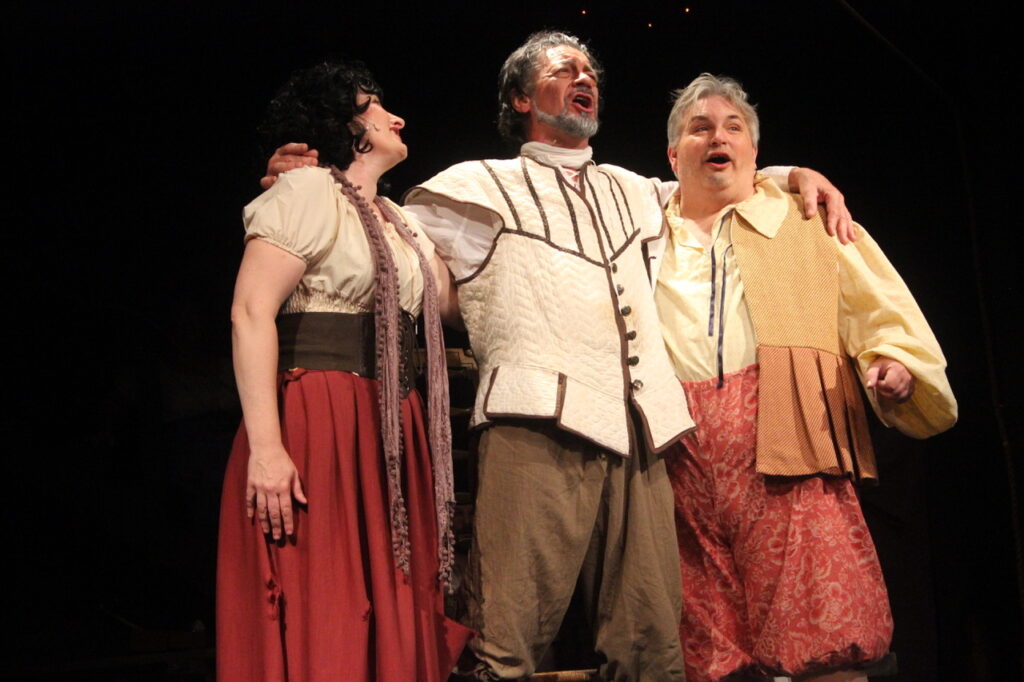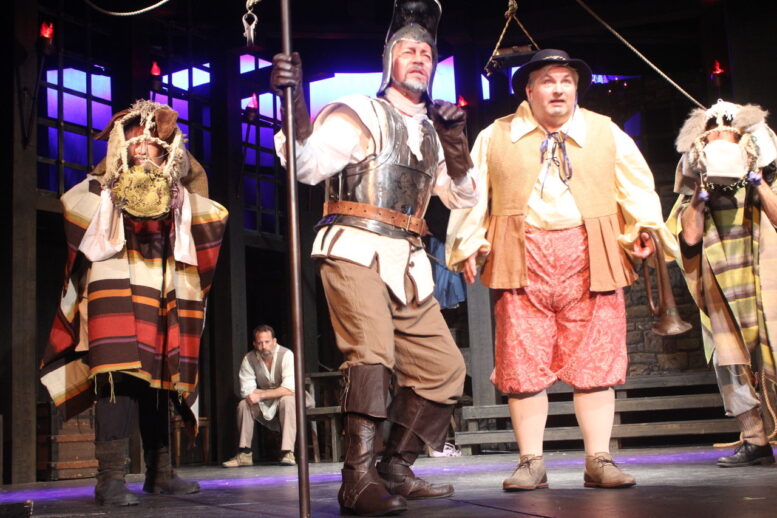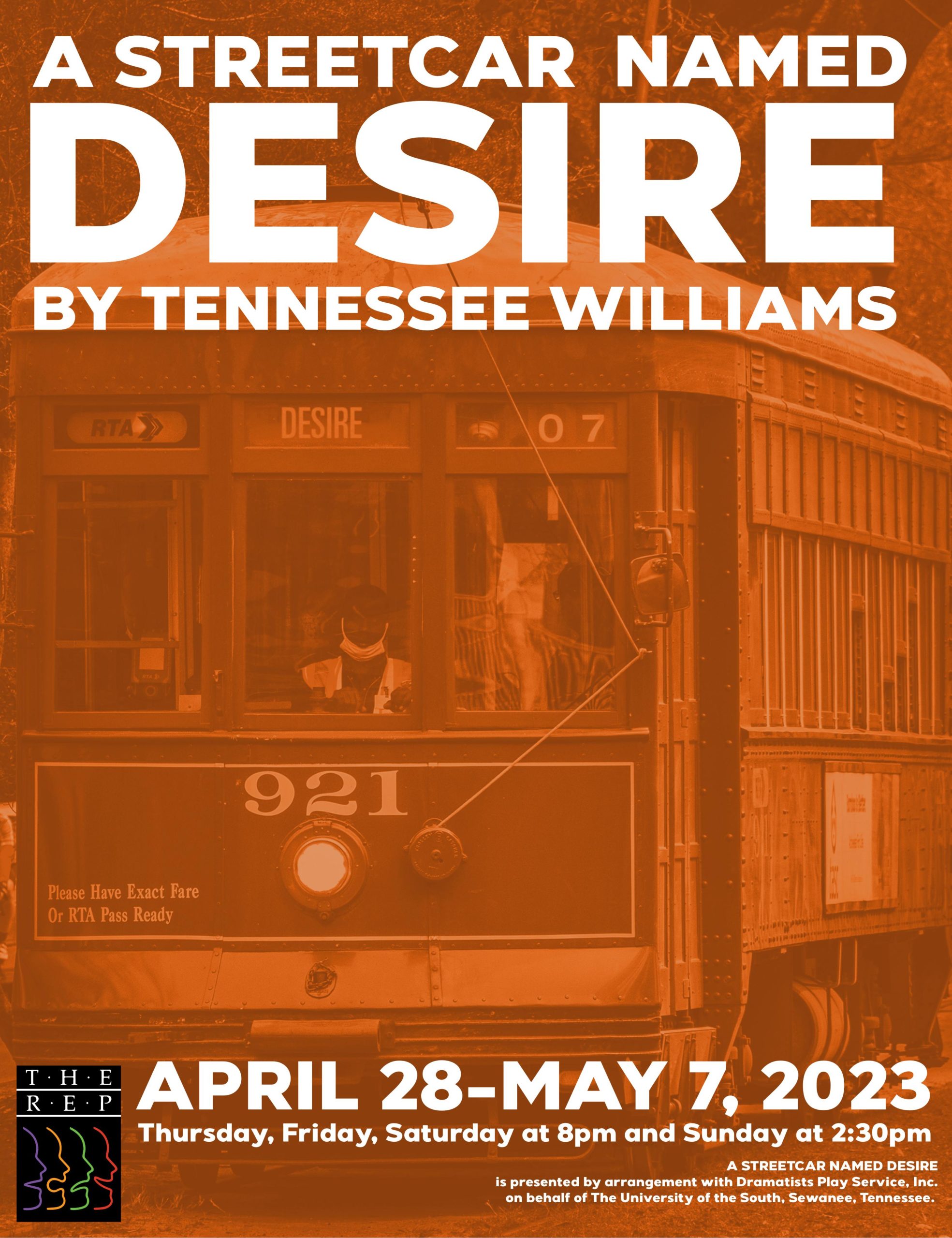By DAVID DUPONT
BG Independent News
The hit song from “Man of La Mancha” established itself inside my brain before I even leave for the theater. It’s a big song musically and in spirit, and it’s been an earworm since the show opened on Broadway opened in 1965.
I didn’t see it on Broadway, but I do remember Richard Kiley singing “The Impossible Dream” on the Ed Sullivan Show. Since then I heard it performed by everyone from Robert Goulet to my older brother Richard, a percussionist who worked up his own solo piano version.
In a way the song overshadowed the hit musical it emerged from.
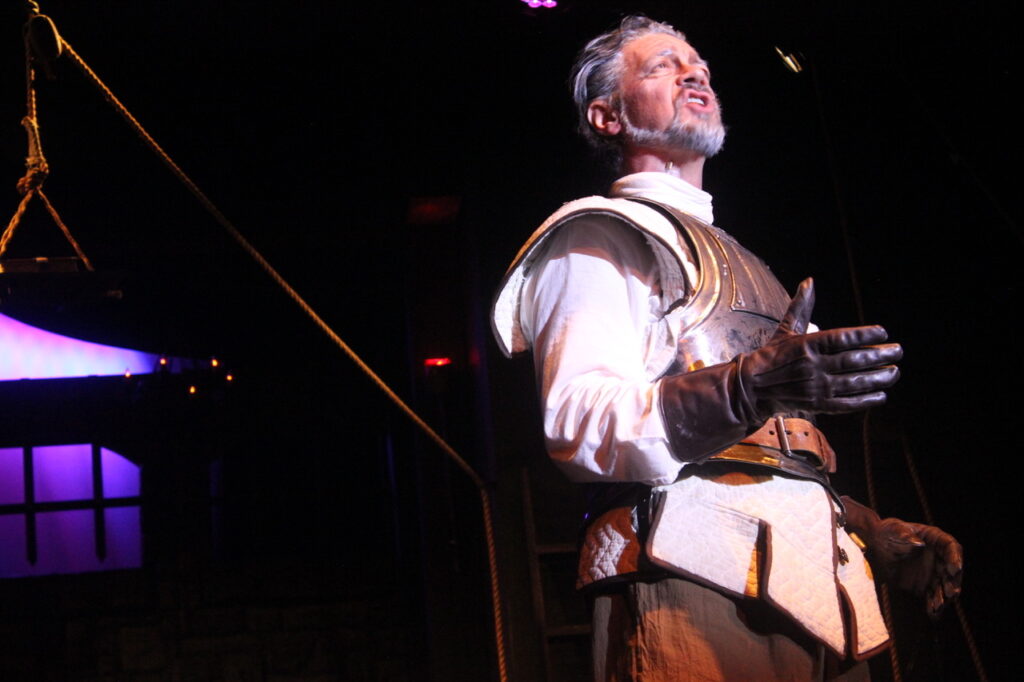
The Toledo Repertoire Theater’s staging of “Man of La Mancha” provided me with a welcomed opportunity to put “The Impossible Dream” in its proper, and far more complex, context. The show with book by Dale Wasserman, music by Mitch Leigh, and lyrics by Joe Darion, opens tonight (May 31) at 8 p.m. in the Rep’s home, the 10th Street Theatre, at 16 Tenth St., Toledo. Directed by Julie Zatko with Izzie Douglass as stage manager, and Gail Mowry as music director, the musical continues with shows Thursdays, Fridays, and Saturdays at 8 p.m. with Sunday matinees at 2, through June 16. Call 419-243-9277 or click here for tickets.
Eric Hillenbrand makes an immediate impression as Miguel de Cervantes as he is led into the dungeon full of common criminals. He is upright, and proud, but not haughty, though his fellow inmates may disagree.
He is accompanied by his servant. Reed’s casting as the comic relief is as pitch perfect as Hillenbrand’s is for the lead.
The inmates are ready to steal Cervantes’ belongings, including a manuscript. But he convinces them to let him stand trial. The charges? Being “an idealist and a poor poet.”
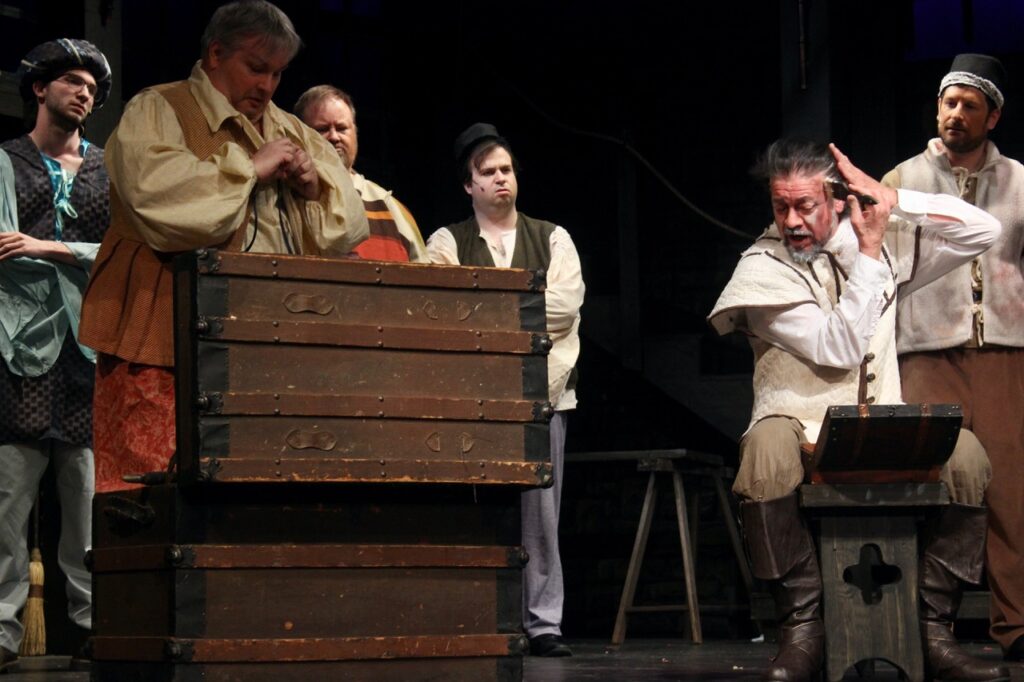
As his defense, he presents a dramatization of the story of one Alonso Quijano, an elderly country squire whose mind is besotted with tales of knights and chivalry. He reimagines himself as Don Quixote, a knight errant , who with his servant Sancho Panza, a man with a belly full of perplexing proverbs, ventures out into the countryside searching wrongs to be righted and monsters to slay.
Here Hillenbrand sings the second most famous song from the score, the title tune “Man of La Mancha.” He shows he has not just the looks but the pipes for the part. Reed provides the right chaser of levity.
Don Quixote sees the world though gilded vision – a windmill is a monster to him. He battles the monster and loses. Seeking someone to properly knight him, he spies a “castle.” It is, of course, as Sancho Panza points out, an inn, a place where the roughest sort of people gather.
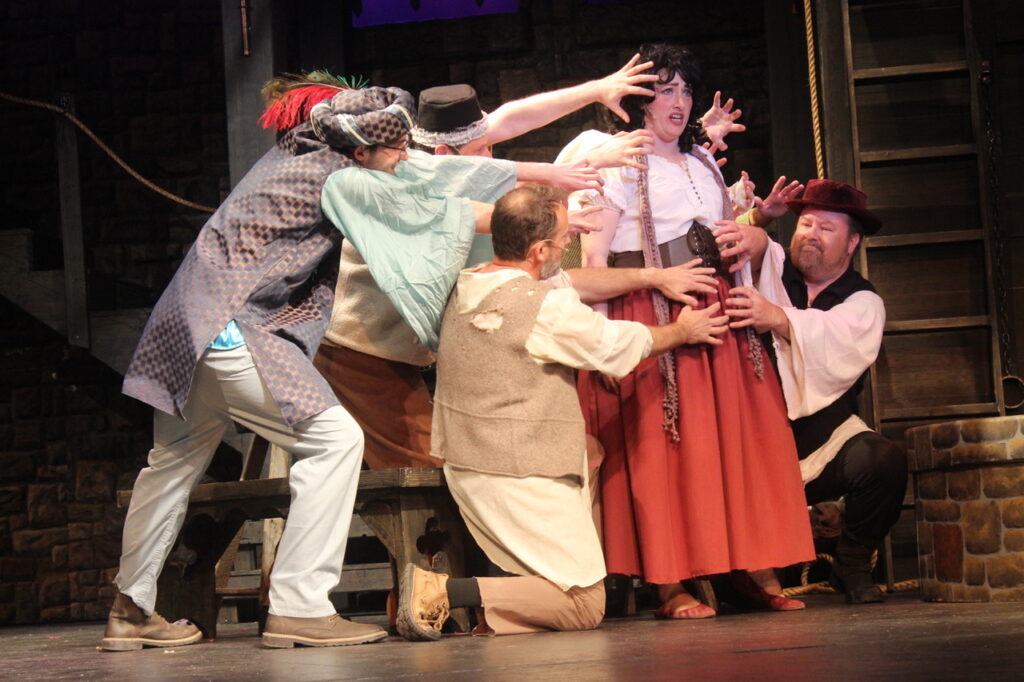
To society Aldonza (Sarah Dusseau) would fit in with that rough lot. She works about the inn and serves as a prostitute. For her, whatever man she beds doesn’t matter. The act and the partner are all the same. She rebuffs the crude advances of the muleteers in the inn with retorts as crude, and more cutting as theirs, and delivers a knee to the groin if necessary.
To Don Quixote, though, she is his “Dulcinea,” the fair lady whom he loves deeply and chastely, as he sings in “The Impossible Dream,” from afar.
This high-minded adoration is too much for her, especially when the muleteers mock her for it.
The role of Aldonza calls on her to express with her voice the emotions of a woman, born and abandoned in the streets with no one to protect her. But her voice also must soar and sparkle as she succumbs to Don Quixote’s glittering delusions.
As Cervantes stages his tale, he pulls in the other prisoners to play the various roles.

Pedro (Grant Evans), called “the Governor” by the others presides over the jailhouse trial of Cervantes and in the story presides over the inn.
The callow and mean-spirited prisoner, known as “the Duke” (Tyler Ward), gets casts as the pompous Dr. Carrasco, who wishes to marry Alonso Quijano’s niece Antonia (Dawn Kingman), but is afraid to marry into the family of a madman.
Joel Twitchell plays the role of the Padre, a confidant of the Quijana family.
Together with the family’s housekeeper (Jada Golden), they plot to capture Quijano and end this Don Quixote nonsense.
Twitchell is especially good at portraying the friar. He is caught between the family’s selfish designs and hypocrisy as expressed in the comic quartet “I’m Only Thinking of Him” and his appreciation for the squire’s idealism expressed in “To Each His Dulcinea.” The Padre wonders if Quijano is the wisest madman or the maddest wiseman.
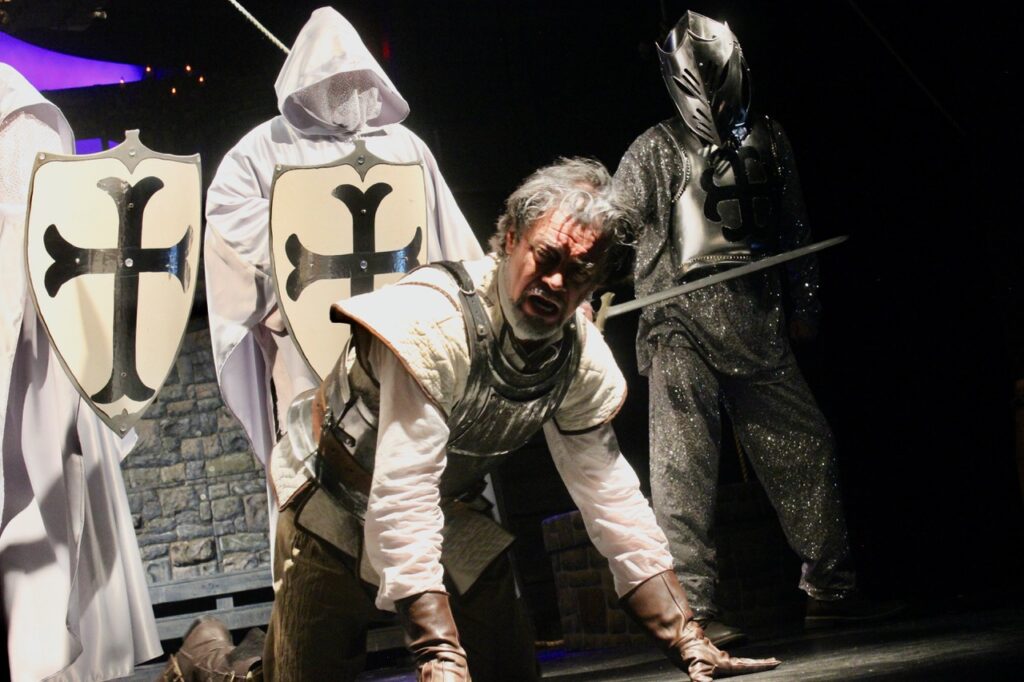
But the old man’s illusions are not necessarily harmless as Aldonza finds out when finally cornered by the muleteers.
Here the story dips into darkness before struggling to draw some light from the beauty of Don Quixote’s vision so richly expressed in both the song “The Impossible Dream” and Hillebrand’s rendition.
The song shines far brighter set within this full, complicated story of the collision of ideals with the rough realities of human existence. While the lyrics ring out with certainty, they leave us with questions after the curtain call.
